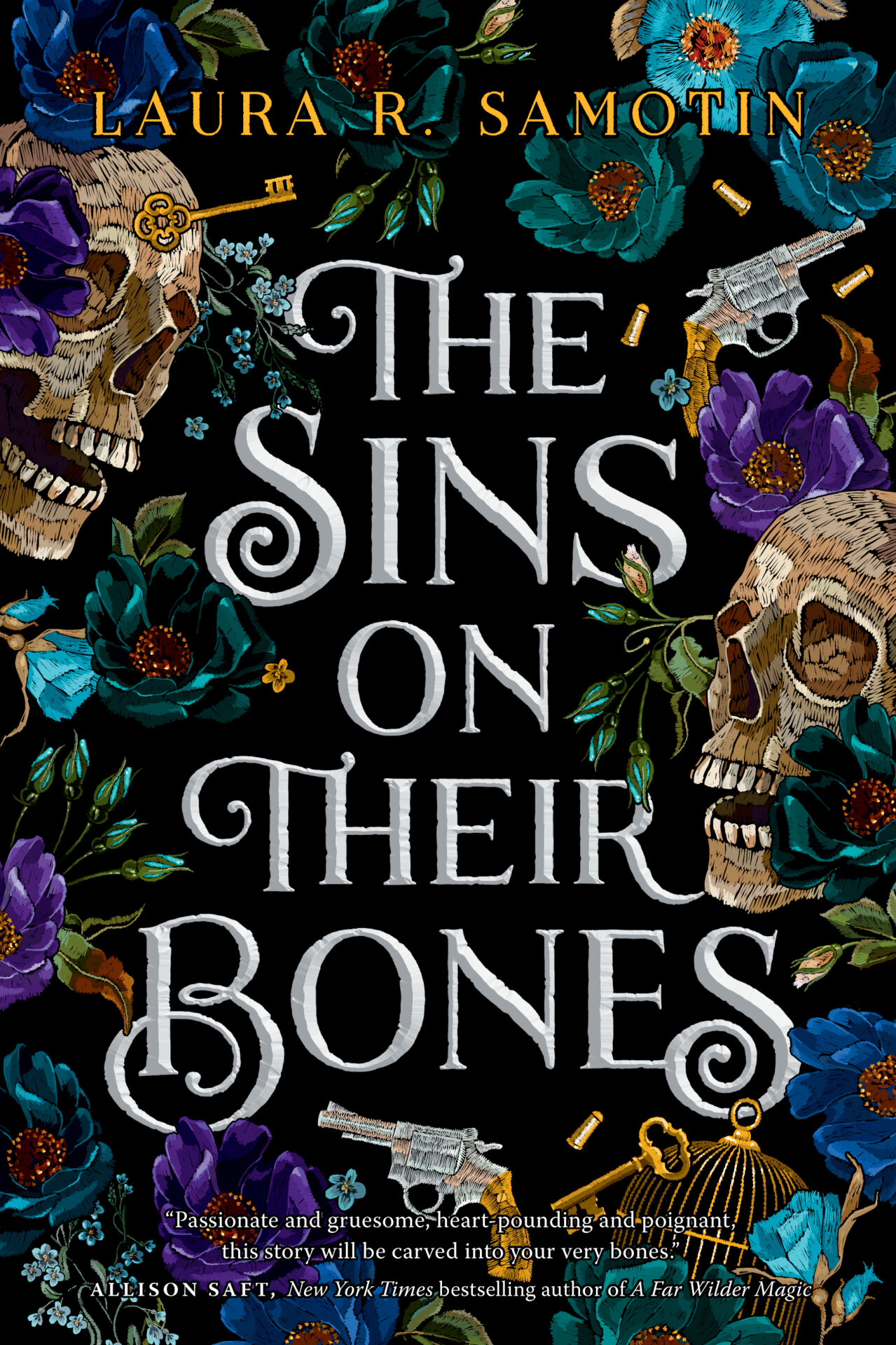
Laura Samotin is joining us today to talk about her novel, The Sins on Their Bones Here’s the publisher’s description:
Inspired by Jewish mysticism and folklore, this queer dark fantasy debut is perfect for fans of Leigh Bardugo, C.S. Pacat, Ava Reid, and Katherine Arden, and is set in a fantastical reimagining of 19th century Eastern Europe. Dimitri Alexeyev used to be the Tzar of Novo-Svitsevo. Now, he is merely a broken man, languishing in exile after losing a devastating civil war instigated by his estranged husband, Alexey Balakin. In hiding with what remains of his court, Dimitri and his spymaster, Vasily Sokolov, engineer a dangerous ruse. Vasily will sneak into Alexey’s court under a false identity to gather information, paving the way for the usurper’s downfall, while Dimitri finds a way to kill him for good.
What’s Laura’s favorite bit?

CW: Suicidal ideation, anxiety/PTSD/depression
THE SINS ON THEIR BONES opens with Dimitri Alexeyev, deposed Tzar of Novo-Svitsevo, sitting on the roof and contemplating how easy it would be to die. Having lost a war to reclaim the throne from his own ex-husband, Dimitri is weighed down by his trauma and his grief. Not only is he living in exile, he has also put his closest friends—the few members of his court who remained with him after his defeat—in mortal danger.
In that scene, Dimitri’s two friends, Annika and Vasily, gently mock his propensity to sit on the roof like an overgrown crow. And he ribs them right back, giving it as good as he gets. And there’s more of the same throughout the narrative—I like to think that for an emotionally heavy book which explores weighty topics, mine delivers a fair few laughs. Being able to laugh softens the blow of having to confront the difficult things, which is one of the most important ways Dimitri eventually gets a handle on the fact that he needs treatment for the PTSD, anxiety, and depression that he’s suffering from. When he starts to laugh about the situation, it’s the first crack in the impenetrable walls he’s built around himself. It’s the first step in letting other people in to help him heal.
There can be humor in heartbreak, and no matter how bleak things seem, there is always a spark of hope. In a book about grief and healing, it was important to me to thread levity through the characters’ journeys. Not only was it essential to the characters themselves and how they dealt with their trauma, but it was also important to me as a reflection of how my culture deals with horrific events. Jewish culture is replete with this kind of high-anxiety humor, which utilizes jokes and sarcasm and bleak hilarity to deal with sometimes unimaginable suffering.
Some people may wonder why there is banter and a bunch of jokes about getting bloodstains out of pants in scenes where characters were literally bleeding out on the floor, facing the very real threat of death. But to me it’s essential—a kind of “if we weren’t laughing, we’d be crying” attitude towards life which for me and my characters is a way to move forward even through terrible things. If we can laugh about it, it means we’re still alive, and there’s still a chance for us to make everything right.
That’s my favorite bit about THE SINS ON THEIR BONES. It’s a story, but it’s also a particular way of looking at the world, one which has helped me and people I know get through life. And maybe it’s a unique reading experience, or maybe it’s a bit of a lesson too—humor can be a powerful rejoinder to a world that wants to break us, and sometimes it’s just the right kind of defiance to remind us that despite all odds, we’re still here.
If you or someone you know is struggling or in crisis, help is available. Call or text 988 or chat 988lifeline.org.
LINKS:
BIO:
Laura R. Samotin has a PhD in international relations from Columbia University and enjoys using her academic background on military tactics, power politics, and leadership to enliven and inform her creative writing. Her YA and adult fiction is grounded in Jewish myth, mysticism, and her Eastern European Jewish heritage.
